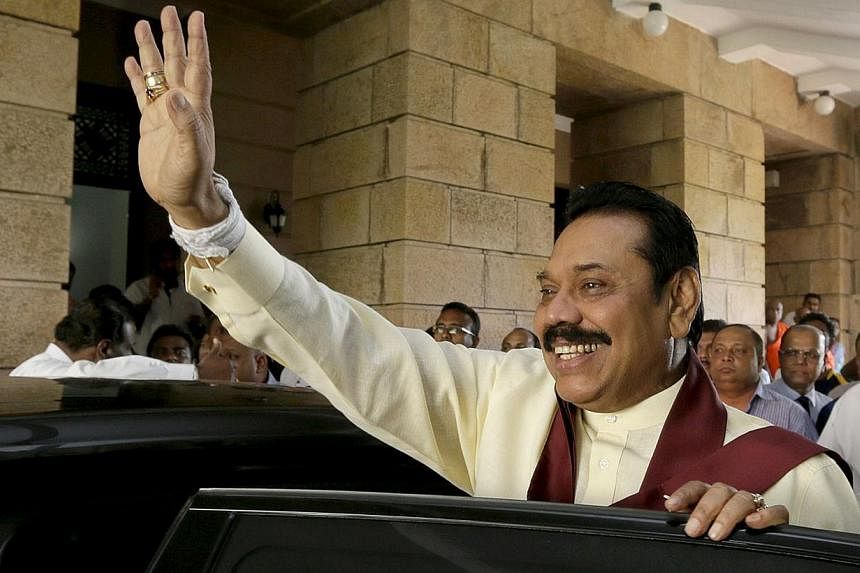COLOMBO (AFP) - Mahinda Rajapakse tried to persuade the army chief to deploy troops when it became clear he had lost Sri Lanka's election, a spokesman for the country's new president said Saturday.
Rajapakse has been widely praised for conceding defeat early on Friday, even before the last votes had been counted, when he realised that his rival Maithripala Sirisena had an unassailable lead.
But in a press conference on Saturday, a top aide to Sirisena said that Lt. Gen Daya Ratnayake, who is the head of the armed forces, had come under pressure to intervene shortly before the concession.
"The army chief was under pressure to deploy but he did not. He declined to do anything illegal," Rajitha Senaratne, the chief spokesman for the new president, told reporters in Colombo.
"Even in the last hour, he (Rajapakse) tried to remain in office. Only when he realised that he had no other option, he decided to go." There was no immediate comment from the military.
Senaratne, who is tipped to become health minister, declined to say whether the deposed president himself tried to contact the military chief or used his younger brother Gotabhaya.
Gotabhaya Rajapakse has often been accused of meddling in his officially neutral role as defence secretary.
"There was a defence ministry conspiracy for Rajapakse to remain in office. Gotabhaya had openly defied election laws and addressed election rallies," Senaratne said, adding the new administration would put a stop to public servants dabbling in politics.
Senaratne said the defence ministry had also tried to deploy troops in the island's former war zone and stage explosions in a bid to discourage ethnic Tamils from voting.
Despite two explosions that caused no harm, the northern region voted overwhelmingly to support Sirisena.
Rajapakse was reviled by many members of Sri Lanka's largest ethnic minority for allegedly ordering the brutal military suppression of a separatist insurgency in which thousands of civilians died.
Senaratne said the new Sri Lankan government had guaranteed the safety of Rajapakse and his family after the vote, but vowed to pursue members of the former administration for human rights abuses.
"We don't believe in revenge, but that does not mean we will not prosecute those accused of wrongdoing," he said.
Sri Lanka has been largely immune from military meddling in politics except for a 1962 coup that failed to topple the government. Since then, there had been no direct military role in the army.
Sri Lanka's former army chief Sarath Fonseka, who launched a failed bit to challenge president Rajapakse in the 2010 election, was convicted of engaging in politics while still in uniform and jailed for 30 months.

